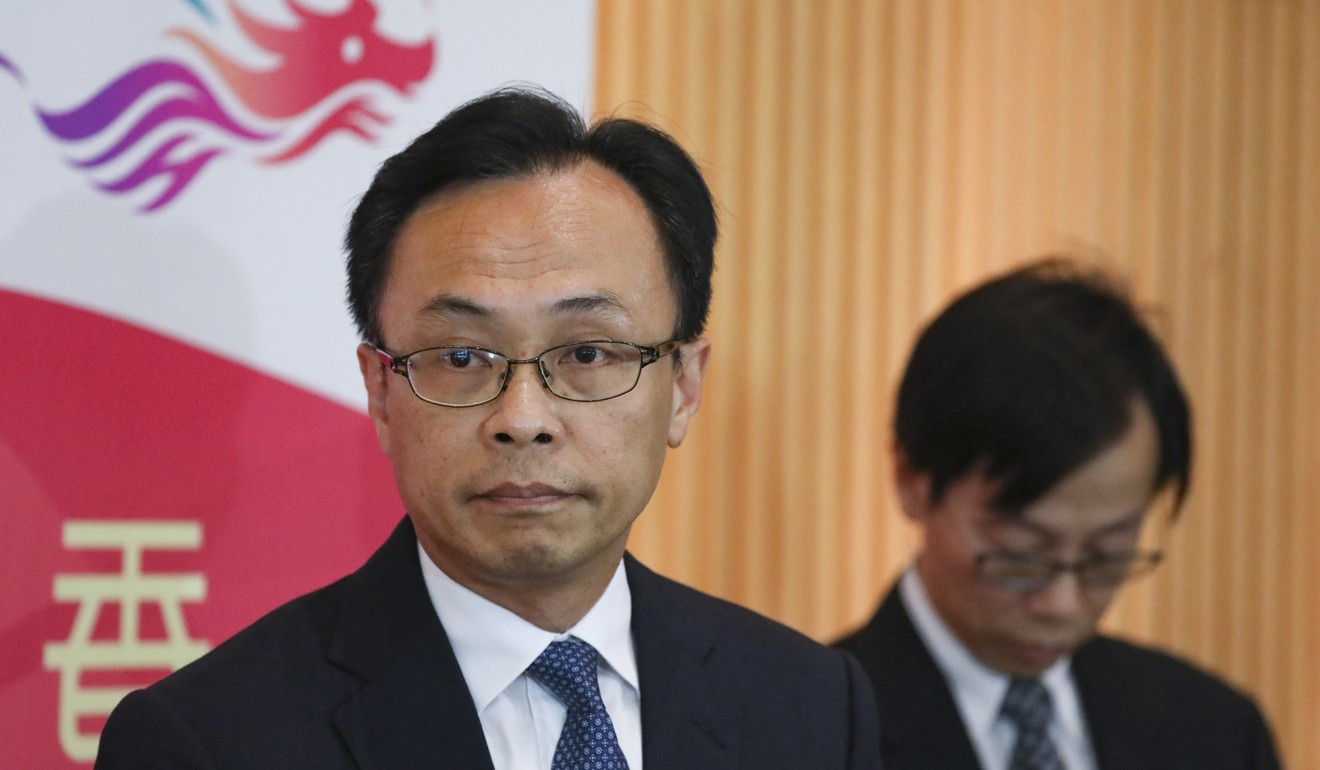
Hong Kong mainland affairs minister bemoans pro-democracy lawmakers’ boycott of Shanghai and Hangzhou trip
- Secretary for Constitutional and Mainland Affairs Patrick Nip criticised the pan-democrats for politicising a non-political visit
- Pan-democrats in turn blamed the government for poisoning the atmosphere by introducing the controversial extradition amendment
Hong Kong’s mainland affairs minister said he was disappointed that pro-democracy lawmakers boycotted the city legislature’s four-day mainland trip, which started on Sunday, saying they should not politicise the visit.
All seven pro-democracy lawmakers who signed up for the official visit to Shanghai and Hangzhou decided to drop out earlier this month, as they said the political atmosphere had turned sour over the bill which would allow the transfer of fugitives to jurisdictions the city lacks an extradition deal with, including mainland China, Macau and Taiwan.
The pro-democracy camp opposes the amendment, saying it could result in people being extradited to places where a fair trial is not guaranteed, such as the mainland.
Secretary for Constitutional and Mainland Affairs Patrick Nip Tak-kuen, who is part of the delegation along with three other top city officials, said it was a pity to see the pan-democrats boycott it, adding that he believed the mainland officials involved in the planning of it would also be disappointed.

If the visits are purely business and duty-based with no politics involved, politics should not be brought into play
“If the visits are purely business and duty-based with no politics involved, politics should not be brought into play,” Nip said, hoping lawmakers would think about relations between the “two systems” under the governing principle of “one country, two systems”. He believed those relations should not be confrontational.
Legislative Council president Andrew Leung Kwan-yuen echoed his disappointment.
“Some of our meetings in Shanghai were added at the request of the pan-democrats. For example, Ip Kin-yuen requested to visit Fudan University. This is a technical visit, and is not at all political in nature,” Leung said, referring to the education sector lawmaker.
Leung hoped that during the trip, lawmakers might examine how Hong Kong can learn from Shanghai and Hangzhou, and explore how Hong Kong could work closer with the two mainland cities.
However, the pan-democrats argued that the government was to blame for degrading the political atmosphere with the introduction of the controversial amendment to Hong Kong’s extradition law.
Ip said: “The extradition law is a critical issue putting freedoms in Hong Kong under threat. We wanted to go but the issue forced us to change our mind.”

The Civic Party’s Jeremy Tam Man-ho, who did not sign up for the trip but had suggested visiting an aircraft manufacturing plant, said their attendance was always a barometer of relations between pan-democrats and the mainland or Hong Kong government.
“There is no way there can be a normal duty visit, given that the extradition amendment was introduced in the middle of it all,” he said.
The Democratic Party’s Andrew Wan Siu-Kin added: “It is the government who provoked this conflict and polarised society. I am surprised Nip was trying to blame this on us.”
Extradition bill not made to measure for mainland China, Carrie Lam says
On Sunday the 22-lawmaker delegation visited the Commercial Aircraft Corporation of China, which has been building China’s home-grown narrow-body passenger jet, the C919, and Fudan University after their flight was delayed by two hours.
They will also visit the Shanghai Stock Exchange, the Hangzhou Hi-Tech Industrial Development Zone, and Alibaba Group, the parent company of the South China Morning Post.

With the voting process to resume on April 30, pro-government lawmakers were mulling the removal of opposition lawmaker James To Kun-sun as presiding chairman and even threatened to bypass scrutiny by the Bills Committee entirely if the election dragged on too long.
But Legco president Leung and another pro-establishment lawmaker, Paul Tse Wai-chun, said on Sunday that it would be foolish to bypass the entire scrutiny process.
Hong Kong Bar Association calls government’s extradition proposal a ‘step backward’
Tse said: “This suggestion is the nuclear option, and both camps would be hurt if we chose it. Are we going to turn the legislature into a mere rubber stamp by allowing certain committees to be bypassed?”
Leung also said: “As this bill is so controversial, it should follow the usual procedure and go through a bills committee first.”
But Federation of Trade Unions lawmaker Kwok Wai-keung, speaking in Shanghai on Sunday night, insisted the pro-establishment camp should prepare itself for the move if the next meeting still failed to elect a chairman.
“Special tactics have to be adopted in special times,” he said.


